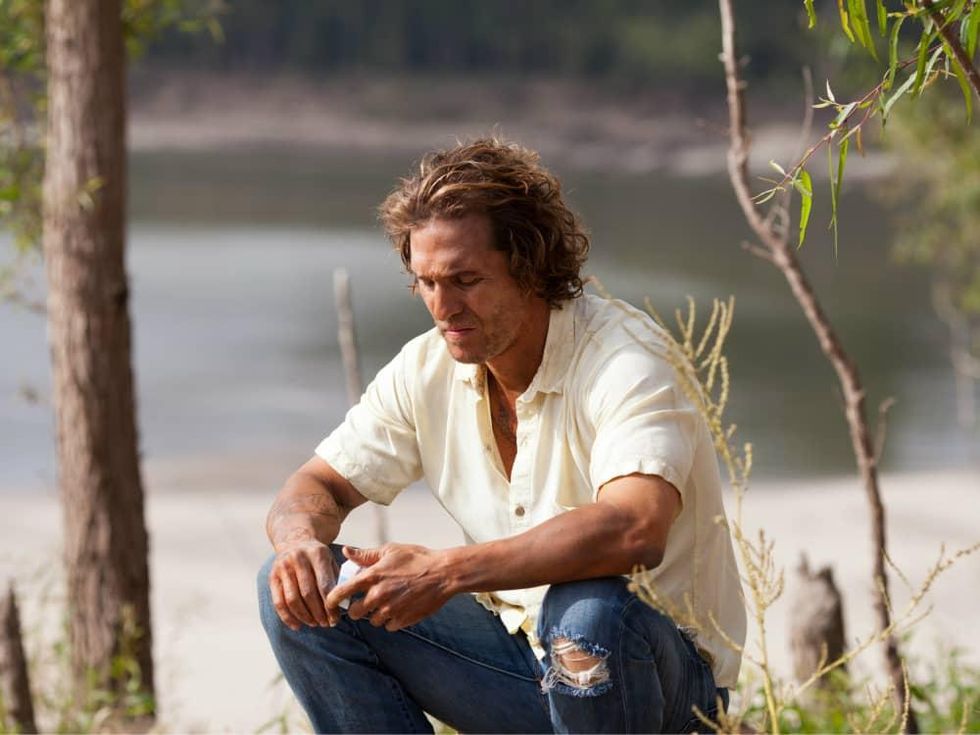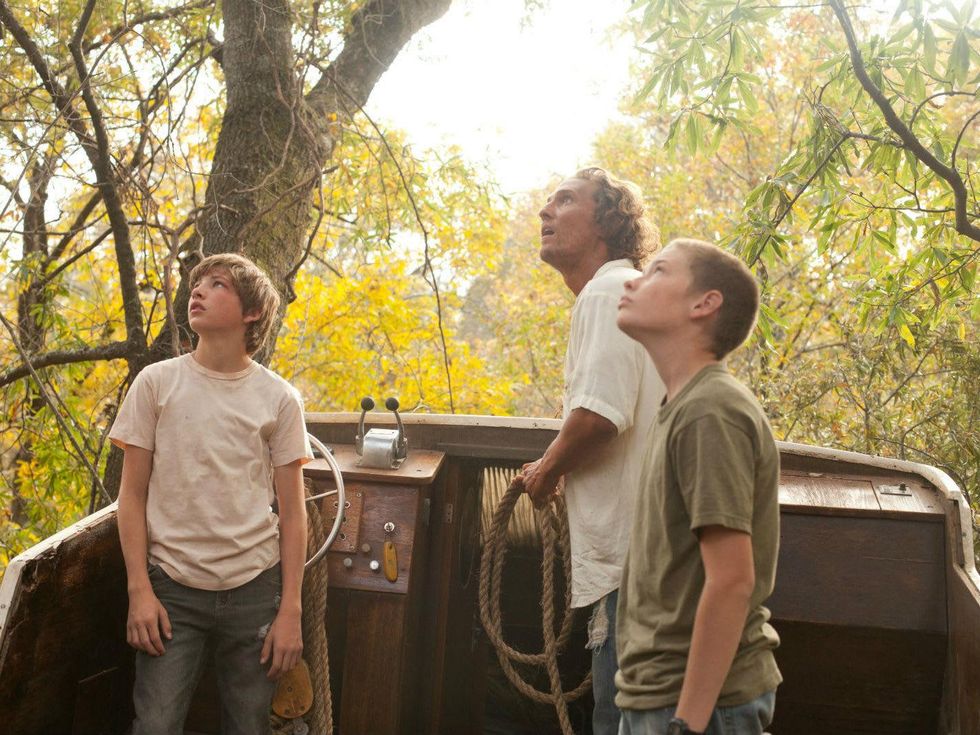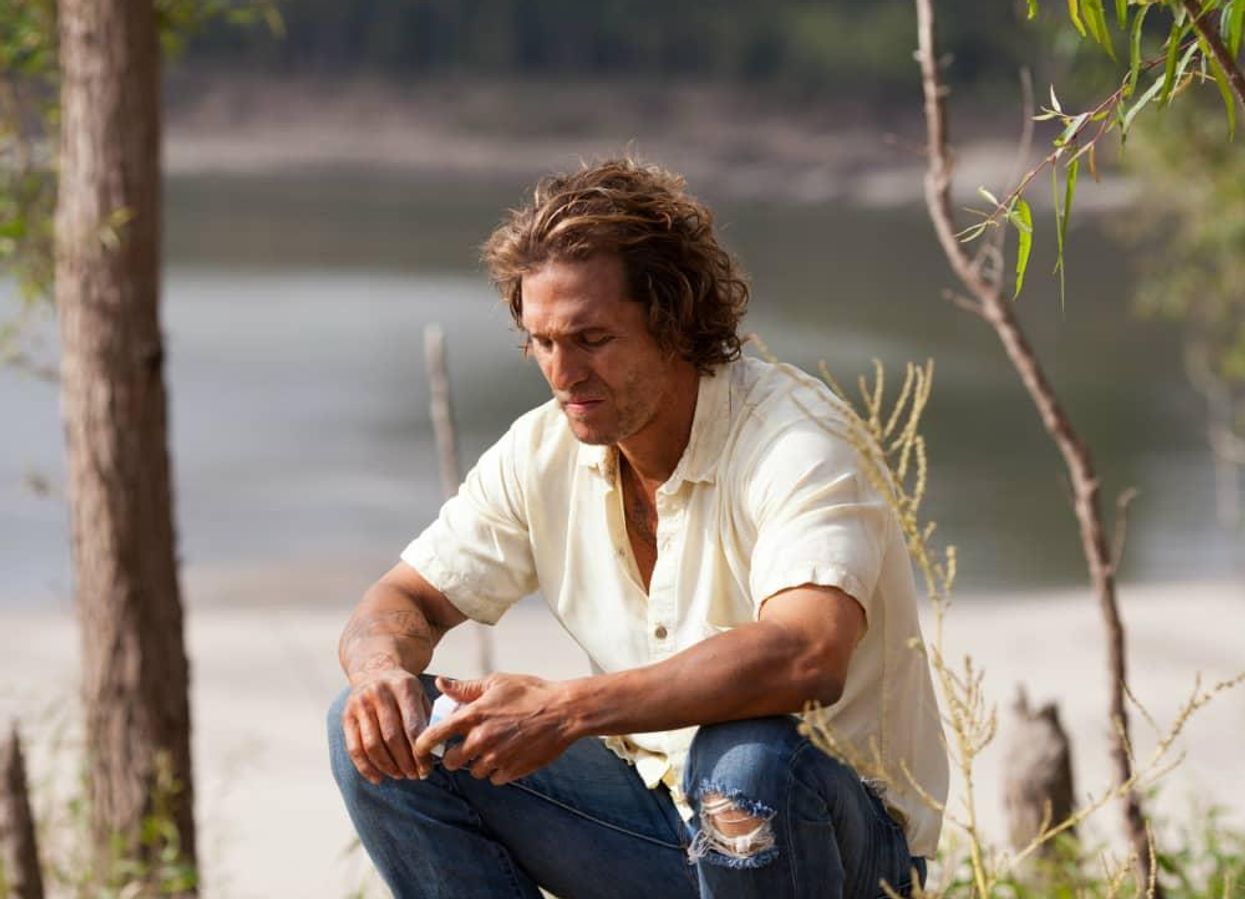DIFF Insight
Mud director reveals why he chose Matthew McConaughey for leading role
Set on the banks of the Mississippi River, Mud (playing at Angelika Film Center Dallas on Friday, April 5) tells the story of Ellis and Neckbone, two best friends on the cusp of adolescence who come across a charismatic outlaw who needs their help. Known simply as “Mud,” the mysterious man (played by a well-cast Matthew McConaughey) recruits the boys in his plan to be reunited with his true love, Juniper (Reese Witherspoon).
While Neckbone remains skeptical, Ellis is quickly drawn in by Mud’s story, and the boys agree to help them run away together. But when a team of bounty hunters descends upon the town, the boys start to find themselves in too deep.
Below, director Jeff Nichols explains how he knew Austin's McConaughey was ideal for the role, how the film is a realistic look at the power and consequences of love, and what is in the name “Mud.”
DIFF: How do you feel McConaughey was able to capture the essence of a down-and-out, lovelorn fugitive? Had you always imagined him playing Mud?
Jeff Nichols: Yes, I wrote this part for Matthew, even though I didn’t know him at the time I was writing it. I could just picture him on an island saying these lines. He brought things to the role that made it even better. Mud is a very determined man that has invented a personal philosophy for himself. Matthew is really similar in this regard; he seems to always be refining his place in the world.
“I wrote this part for Matthew, even though I didn’t know him at the time I was writing it,” says director Jeff Nichols.
An essential part of Mud’s character is that his many speeches to the boys, about his past and about Juniper, sound like dreams and not just memories. Early on, Matthew recognized this crucial difference, and I think it helped make his character so captivating.
DIFF: Did Mud choose this name for himself? What does the name “Mud” say about him?
JN: I was listening to a lot of Townes Van Zandt when I was conceiving of this story, and the song “Mr. Mudd and Mr. Gold” was definitely playing in my head. There’s also the “your name is Mudd” connotation as well. But the name really just felt right given the location.
Mississippi mud is a very real substance. We were caked in it during the entire shoot, so there is that. Also, for a film about the murky subjects of love and adolescence, “Mud” just seemed like an appropriate word to anchor the film to.
DIFF: Could you describe the connection that Ellis forms with Mud? What is it in Ellis that he wants to believe Mud’s story so quickly while Neckbone doesn’t?
JN: Simply put, Ellis needs to find an example of love that works, and he believes he’s found that example in Mud. Ellis needs this for two reasons. First, he’s becoming a young man, starting to have strong feelings for girls, and so he is beginning to explore the idea of love for himself.
Second, if love is possible, then it’s possible that Ellis’ parents, who are on the verge of splitting up, could stay together. Neckbone represents the rational, arguably adult side of ourselves. He’s the one that calls “bullshit.” Reality is always just behind us, telling us how complicated life and love really are.
DIFF: Love and its loss is a recurring theme throughout the film. How does love guide the characters in Mud, for better or for worse?
JN: This whole film is about love. I chose to consider the subject through a male point of view. A lot of times stories look at love, especially romantic love, through the eyes of women. I wanted to flip that.
This is a male film about romantic love. As far as what it says about love, ultimately I’ll leave that up to the audience. For me, and this applies to all of my films, love and pain are forever interconnected. You can’t love without risking the possibility of real pain. Some might see this as a downer, but I actually think it’s kind of a beautiful thought. I certainly subscribe to it.
DIFF: Teenage actors Tye Sheridan and Jacob Lofland give outstanding and authentic performances as Ellis and Neckbone. What would you say they brought to the roles?
JN: The most important thing to note about Jacob and Tye is that they gave actual performances in this film. What I mean is, a lot of films remove dialogue from kids in order to capture more honest, truthful moments. I actually can agree with this approach and like to see it executed well. However, our film required these boys to not only learn lines, but ingest them and deliver them in a way that felt honest and truthful to this part of America and this stage in adolescence.
I think Tye and Jacob accomplished this, which is a feat adult actors have trouble pulling off, and they took what was on the page and brought it to life. A big part of this is because they seem so close in real life to these characters. I knew going in I had young men that were truly from this area, so I never had to worry about accent or even teaching them how to ride a dirt bike or run a boat. I think they’re both stars.
Mud is one of the few films playing only once during the Dallas International Film Festival, on April 5 at Angelika Film Center Dallas.



